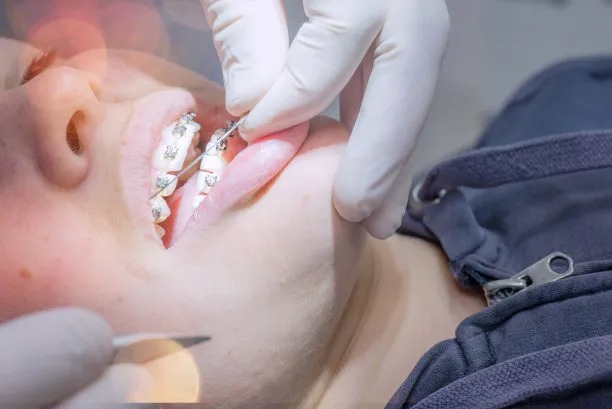Summary: Dental implant surgery is a significant decision that requires careful planning and consideration. This article outlines essential considerations and precautions that prospective patients must take to ensure optimal results. We will focus on understanding the comprehensive evaluation needed before surgery, the importance of selecting a qualified dental professional, the necessity of thorough preoperative care, and the factors that influence recovery post-surgery. By grasping these key aspects, patients can enter the implant process with confidence and a better understanding of what to expect.
1. Thorough Evaluation of Dental Health

Before undergoing dental implant surgery, a comprehensive evaluation of overall dental health is crucial. This involves a complete dental examination, including X-rays and possibly a 3D scan. These diagnostics help in analyzing bone density and determining the precise location for the implants. Understanding the patient’s oral anatomy is essential for successful implant placement.
Not only should existing dental issues be addressed, but it is also important to gain insight into habits such as teeth grinding or smoking, which could complicate the healing process. Patients should provide their dental history, including previous dental work, to help the dental professional make informed decisions.
A thorough health assessment also includes discussions around any systemic health problems such as diabetes, heart conditions, or autoimmune disorders, as these factors can significantly affect the surgerys success and healing times.
2. Importance of Choosing a Qualified Dental Professional
The success of dental implant surgery heavily relies on the expertise of the dental professional performing the procedure. It is essential for patients to select a skilled and qualified dentist or oral surgeon with specific experience in dental implants. Checking credentials, such as training in implant surgery and memberships in professional organizations, can provide reassurance.
Another critical consideration when choosing a dental professional is to look for reviews and testimonials from previous patients. These insights can offer valuable information regarding the quality of care and the overall patient experience.
Patients should also consider the technology used in the practice. Advanced techniques and equipment are essential for successful implant placement and can lead to more predictable outcomes.
3. Necessity of Comprehensive Preoperative Care
Preparing for dental implant surgery involves a set of important preoperative steps to ensure optimal results. Patients may need to undergo additional dental procedures, such as bone grafts or sinus lifts, if there is insufficient bone density to support the implant. Addressing these issues early on helps prevent complications during the implant procedure.
Additionally, patients must discuss medication usage with their dentist, including over-the-counter drugs and supplements. Certain medications may interfere with healing or increase the risk of complications, and adjustments may be needed before surgery.
Establishing a plan for post-operative care is also crucial. Patients should be well-informed about the medications prescribed for pain management and antibiotics to prevent infection. It is wise to have a reliable support system in place to assist with recuperation during the initial recovery phase after surgery.
4. Understanding the Factors Influencing Recovery
Recovery after dental implant surgery is a critical phase that can significantly influence the surgerys success. Understanding factors that affect the healing process is essential for patients. Firstly, individual health conditions such as age, lifestyle, and medical history can impact recovery times. Younger, healthier individuals tend to heal faster than those with chronic conditions.
The type of implant used and the complexity of the procedure also play a role in recovery. Simpler placements generally lead to quicker healing, while more complex surgeries might require extended recovery periods.
Finally, aftercare practices are vital in promoting healing. Patients are encouraged to adhere strictly to post-operative instructions, including dietary restrictions, oral hygiene practices, and follow-up appointments. These actions are essential in ensuring that the implants integrate well with the jawbone and that optimal results are achieved.
Summary:
In conclusion, understanding the essential considerations and precautions before undergoing dental implant surgery can greatly enhance the likelihood of a successful and satisfying outcome. By focusing on a thorough dental evaluation, choosing the right dental professional, engaging in comprehensive preoperative care, and recognizing the factors impacting recovery, patients can confidently navigate the process. Taking these measures not only prepares individuals for surgery but also sets the stage for long-term dental health.
This article is compiled by Vickong Dental and the content is for reference only.
Vickong Dental
Vickong Dental is a large medical group established in Hong Kong in 2008 by professors from well-known medical universities in Guangdong and Hong Kong, as well as medical doctors from key national '985' universities (including Master's supervisors and senior professors). The chain of branches brings together expert dentists with PhDs and Master's degrees from Hong Kong and Mainland China, committed to providing high-quality dental treatment.
"Vickong Dental Practices the University Motto of 'Healing and Serving Society,' with a Stable Operation for Sixteen Years. It Has Been honored with Hong Kong Enterprise Leaders's Choice,' and is a Global Trusted Implant Center for the Nobel Implant System. Recommended by Hong Kong Metro Broadcast and Guangdong Television, it Serves Customers from Over Thirty Countries and Regions, Gaining the Trust and Favor of Citizens from the Guangdong-Hong Kong-Macau Greater Bay Area and Surrounding Cities.

Thousands of customers' unanimous praise
The most recognized and highly recommended dental service by customers in the Guangdong-Hong Kong-Macau Greater Bay Area
We Ensure You Receive Detailed Care and Attention Here
Hong Kong standards, Shenzhen prices, Your Trusted English-speaking dentists

Vickong Dental Medical-Grade Instrument Disinfection Process
Vickong Dental Medical-Grade Instrument Disinfection Process

Vickong Dental Chain: A Warm and Comfortable Environment for Treatment






Appointment Hours

Q&A
Why choose Vickong Dental?
Vickong Dental practices the university motto 「Medicine to Benefit Society」, with each branch bringing together highly qualified dentists with doctoral and master’s degrees from Hong Kong and the Mainland, and has maintained seventeen years of steady operation。Recipient of 「2024 Hong Kong Enterprise Leaders Brand」, 「2025 Hong Kong Enterprise Leaders Brand」, a Nobel Biocare Global Trusted Implant Center, and a brand recommended by Metro Radio Hong Kong and Guangdong TV。
To date, we have served customers from more than thirty countries and regions,earning exceptionally high word-of-mouth recognition and trusted recommendations from residents across the Guangdong-Hong Kong-Macao Greater Bay Area and surrounding cities
We have eight major branches in Zhuhai、Shenzhen,and a consultation and service assurance center in Hong Kong,so you can book a free consultation at any time for any questions,which is very reassuring.
If I do not accept the quotation after the CT scan, will I be charged??
No! As long as the actual treatment has not started, you will not be charged any fees.
Will there be any additional charges during the treatment process?
No, there won’t be any additional charges. Before treatment begins, we will clearly explain the treatment plan and its corresponding fees. Only after the patient agrees and signs the consent form will we proceed with the dental service.
Can I pay in Hong Kong dollars?
Yes. Vickong Dental accepts payment in Hong Kong dollars. The amount will be converted based on the exchange rate of the day, and the applicable rate will be clearly communicated to you in advance.
Can I reschedule my appointment at any time?
Yes. Please contact us via **WeChat** or **WhatsApp** as early as possible, providing your original appointment time and details, along with your preferred new date and time slot for rescheduling.













